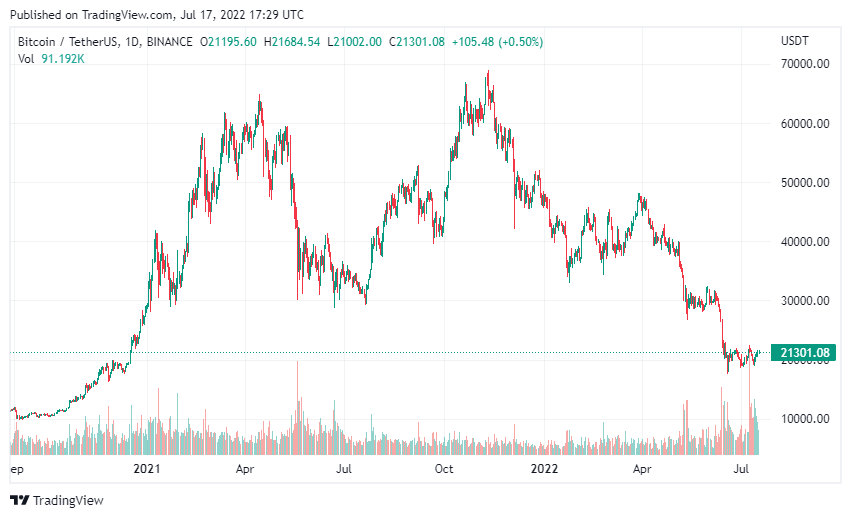Central African Republic Greenlights Bitcoin As Reserve Asset
Summary:
- Bitcoin is set to serve as a reserve asset in the Central African Republic.
- The leading coin was recently approved as legal tender in the African state following a proposal from key lawmakers.
- CAR also launched its Sango coin and sidechain project to complement and power crypto adoption nationwide.
- Initiatives like natural resource tokenization accompanied the launch of Sango as well.
- Bitcoin adoption in CAR has faced stiff opposition from entities like the IMF and the Bank of Central African States.
The Central African Republic (CAR) has planned to leverage Bitcoin as a reserve asset as part of the country’s efforts to embrace cryptocurrencies and blockchain technology as tools to bolster the debilitated economy.
At press time, Bitcoin trades above $21,000 per data from trading view.
CAR’s decision to deploy crypto’s top coin as part of its national reserves comes on the heels of a policy geared towards legalizing BTC in the country. The nation became the first jurisdiction in Africa to approve Bitcoin as legal tender back in April.
💥Central African Republic will hold #Bitcoin as a reserve asset. pic.twitter.com/LShAzXd8Qu
The national assembly gave the nod of approval after two lawmakers, Minister of digital economy Gourna Zacko and Minister of Finance Calixte Nganongo developed the proposal. Officials expressed support for the policy and the bill enjoyed a unanimous vote in the Senate.
CAR followed up its BTC legalization bill with a project dubbed Sango, a blockchain-based platform to support crypto adoption in the nation. According to the reports, Sango is a Bitcoin sidechain built similarly to the Liquid Network.
Sango is set to launch on July 25 and is expected to function as a digital monetary system with a layer 2 component.
Bitcoin Adoption In The CAR Met With Opposition From Financial Regulators
While BTC adoption in the Central African Republic’s senate received support, the move has attracted criticism from external bodies who believe the decision could jeopardize the nation’s economic stability rather than save it.
Much like in the case of El Salvador, the International Monetary Fund lodged concerns and advised the CAR to consider going down a different route. The Bank of Central African States, a financial powerhouse that serves six nations including the CAR, also opposed BTC adoption on a nationwide scale.
Source: Read Full Article



